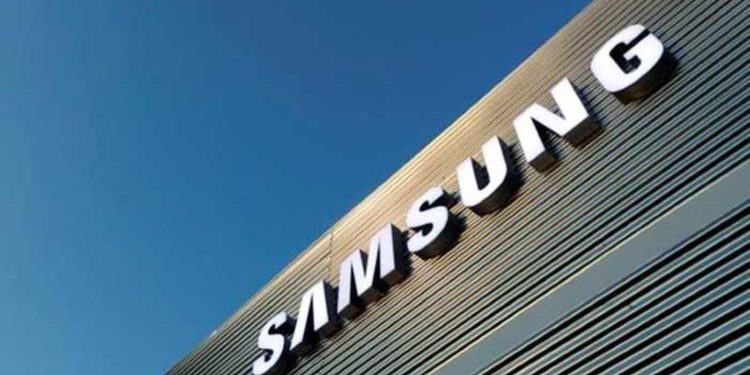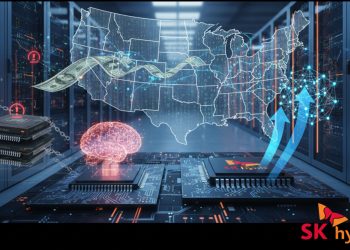Deal could reshape South Korea’s energy storage ambitions as battery makers shift focus amid global market changes
South Korea’s Samsung SDI Co. confirmed on Tuesday that it is in talks with Tesla Inc. to supply energy storage system (ESS) batteries, a deal that could be worth more than 3 trillion won ($2.1 billion). If finalized, this would mark Samsung SDI’s first large-scale ESS partnership with Tesla and one of its biggest non-automotive contracts to date.
Following the announcement, Samsung SDI’s shares jumped over 8%, as investors welcomed the company’s potential breakthrough in the global energy storage market — an area gaining traction amid rapid renewable energy expansion and grid modernization efforts.
A Strategic Shift: From EV Batteries to Energy Storage
The discussions come as South Korean battery makers are reconfiguring production strategies in response to market disruptions, particularly the elimination of certain U.S. subsidies for electric vehicle (EV) batteries. The policy changes have reduced profit margins and demand from traditional automotive clients, prompting companies like Samsung SDI to repurpose EV battery lines for ESS production.
During its latest earnings announcement, Samsung SDI noted a sharp decline in demand for EV batteries from its joint venture partner Stellantis. In response, the company intends to reconfigure part of its manufacturing plant in Indiana to produce batteries specifically designed for stationary energy storage applications. The shift highlights Samsung SDI’s broader strategy to diversify beyond the electric vehicle market and capture new growth in the expanding energy storage sector.
ESS batteries share similar chemistry to EV batteries but are designed for large-scale, long-duration power storage — making them essential for data centers, renewable energy plants, and grid stabilization. As nations transition toward renewable energy, ESS capacity is becoming a critical enabler of power reliability.
The Reported Deal: A Three-Year Partnership
According to The Korea Economic Daily, Samsung SDI has already reached an agreement to supply Tesla with ESS batteries over a three-year period, with an estimated annual volume of 10 GWh. The partnership would make Samsung SDI a key supplier for Tesla’s Megapack energy storage units, which store surplus renewable energy for grid use.
While Tesla has not yet issued an official statement, industry insiders say the discussions reflect a shared strategic interest: Tesla seeks to expand its energy storage business globally, while Samsung SDI is aiming to stabilize its revenue streams amid cooling EV demand.
Reducing Dependence on China
If concluded, the agreement would mark another decisive move by Tesla to diversify its supply chain away from China. With geopolitical tensions, tariffs, and supply chain vulnerabilities intensifying, Tesla has been strengthening ties with South Korean suppliers for both chipsets and batteries.
Recent collaborations include:
- An eight-year, $16.5 billion contract with Samsung Electronics for next-generation 2nm AutoPilot “AI6” chipsets.
- An expanded battery supply arrangement with LG Energy Solution, another major Korean manufacturer.
This ESS partnership with Samsung SDI would thus reinforce Tesla’s “China-plus-one” strategy, enhancing supply security while supporting South Korea’s emerging leadership in next-generation energy technologies.
Tesla’s Context: Balancing Growth and Profitability
The talks come as Tesla navigates a mixed financial environment. The company reported record quarterly revenue of $28.09 billion in Q3 2025, up 12% year-on-year, but saw net profit fall by 37% to $1.37 billion. Rising research and development costs — particularly in AI, autonomous driving systems, and battery innovation — combined with tariffs and higher component costs, have weighed on margins.
Tesla’s R&D expenses jumped nearly 57%, from $1.03 billion in Q3 2024 to $1.63 billion in Q3 2025, underscoring the company’s commitment to technological leadership despite financial headwinds. Vehicle production dipped 5%, but deliveries hit a record 497,099 units, driven by strong demand in North America before federal EV tax credits expired.
Samsung SDI’s Pivot to Energy Storage
For Samsung SDI, this potential deal represents more than just a new client — it reflects a strategic repositioning within the global energy ecosystem. The company’s decision to invest in ESS production aligns with long-term forecasts showing the global energy storage market quadrupling by 2030, driven by renewable energy integration and grid decarbonization policies.
The transition also serves as a buffer against EV market volatility. With many automakers scaling back production or shifting alliances, ESS offers a more predictable, infrastructure-driven growth path. Analysts note that Samsung SDI’s high-density, long-life batteries make it a strong contender for grid-scale storage projects, particularly in North America, where utilities and data centers are major ESS customers.
Industry Analysis: Why Energy Storage Is the Next Big Play
The Samsung-Tesla discussions underscore an important trend — energy storage is becoming the new growth engine for battery manufacturers. ESS units are increasingly vital for:
- Balancing renewable power supply from solar and wind farms.
- Reducing grid dependency during peak demand.
- Powering data centers and industrial hubs requiring stable energy delivery.
By entering this space, Samsung SDI not only diversifies its portfolio but also positions itself as a central player in global energy transition efforts. For Tesla, securing diversified, high-capacity ESS suppliers is essential to scaling its energy business alongside EVs.
Outlook: A Symbiotic Partnership for the Energy Transition
If the deal materializes, it would be a mutually reinforcing relationship: Tesla gains a reliable, non-Chinese supplier to support its expanding ESS portfolio, while Samsung SDI gains access to one of the world’s most high-profile energy storage platforms.
Beyond commercial gains, the collaboration could serve as a benchmark for the future of global supply diversification, where clean energy, geopolitics, and industrial resilience intersect. As both companies navigate shifting market and policy landscapes, this potential partnership could accelerate the integration of energy storage as a cornerstone of sustainable infrastructure worldwide.
In essence:
Samsung SDI’s talks with Tesla go beyond a single contract. They reflect a strategic pivot — where South Korea’s battery makers are adapting to global headwinds by moving up the clean energy value chain. Whether for cars or grids, the next decade of energy competition will be defined not by who makes the most batteries, but by who controls the most adaptable and resilient energy storage ecosystems.







